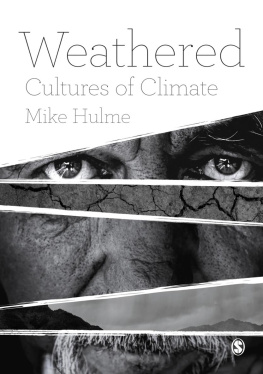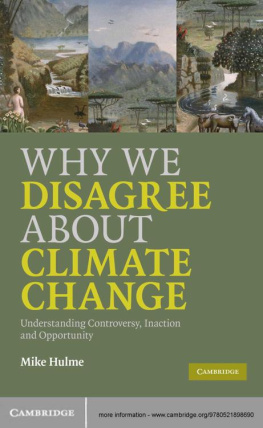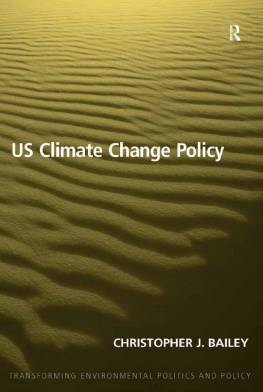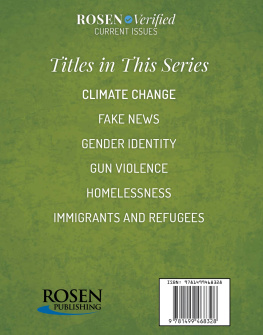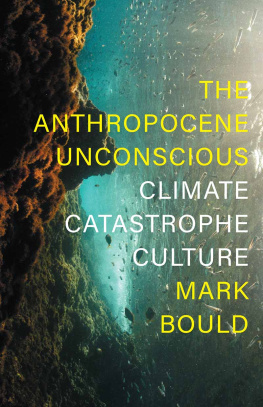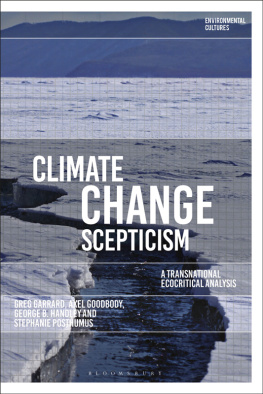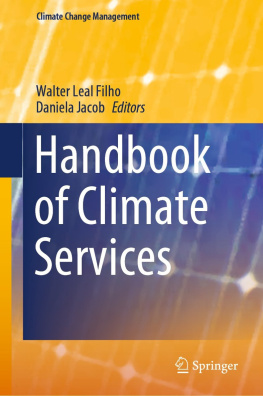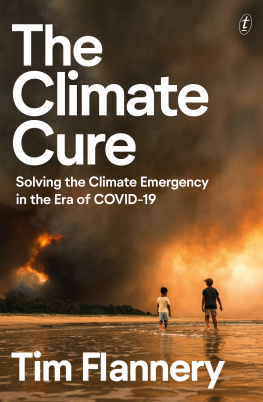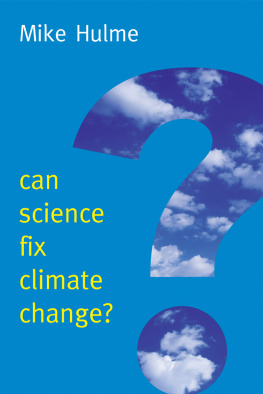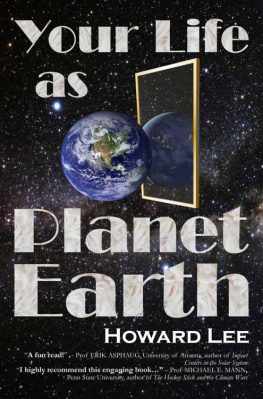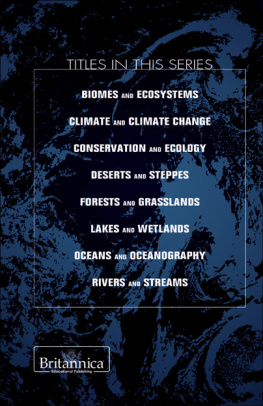In memory of my mother, Shelagh Mary Hulme, who died as I embarked on the writing of this book. Her love of geography and of literature are reflected in various ways in what is written here.
SAGE Publications Ltd
1 Olivers Yard
55 City Road
London EC1Y 1SP
SAGE Publications Inc.
2455 Teller Road
Thousand Oaks, California 91320
SAGE Publications India Pvt Ltd
B 1/I 1 Mohan Cooperative Industrial Area
Mathura Road
New Delhi 110 044
SAGE Publications Asia-Pacific Pte Ltd
3 Church Street
#10-04 Samsung Hub
Singapore 049483
Mike Hulme 2017
First published 2017
Apart from any fair dealing for the purposes of research or private study, or criticism or review, as permitted under the Copyright, Designs and Patents Act, 1988, this publication may be reproduced, stored or transmitted in any form, or by any means, only with the prior permission in writing of the publishers, or in the case of reprographic reproduction, in accordance with the terms of licences issued by the Copyright Licensing Agency. Enquiries concerning reproduction outside those terms should be sent to the publishers.
Library of Congress Control Number: 2016939661
British Library Cataloguing in Publication data
A catalogue record for this book is available from the British Library
ISBN 978-1-4739-2498-7
ISBN 978-1-4739-2499-4 (pbk)
Editor: Robert Rojek
Editorial assistant: Matthew Oldfield
Production editor: Katherine Haw
Copyeditor: Catja Pafort
Proofreader: Camille Bramall
Indexer: Bill Johncocks
Marketing manager: Sally Ransom
Cover design: Stephanie Guyaz
Typeset by: C&M Digitals (P) Ltd, Chennai, India
Printed in the UK
Praise for Weathered
Mike Hulmes wise and well-crafted book encircles the idea of climate from a series of perspectives, showing its elusive nature from a welter of examples. As the argument develops, we see how climate is embedded in multiple cultures, histories, and knowledges about nature. We are shown how our views of climate depend on personal experiences, scientific models, inherited tropes, and political interest. Each chapter reflects a turn of the kaleidoscope, gradually making the reader see both the complexity and the singularity of each image. Hulmes remarkable achievement is to humanise climate, without losing sight of the larger challenges; this is where the book cannot but affect the reader.
Kirsten Hastrup, Professor of Anthropology, University of Copenhagen
Everybody may be talking about the weather, but how do we experience climate? While climate has mostly been left to the natural sciences, Mike Hulmes book shows how climate is much more than the average weather. It is a cultural relationship between humans and the weathers they dwell in. How do cultures live with the weather? How does the experience of climate structure our sense of space and time? This book is the first to offer a systematic overview of the many forms of knowledge, cultural practices and personal attitudes that helped humans in different epochs and locations deal with their meteorological environment. Its importance lies not just in the wealth of material and its brilliantly clear structure but also in the way Hulme links a humanities-based approach to climate with the current state of climate science. This is a milestone for interdisciplinary climate research and a must-read for all scholars and students trying to understand how a human being-in-the-world is a being-in-climate.
Eva Horn, Faculty of Philological and Cultural Studies, University of Vienna
We desperately need a book like this one, a book that reorients our thinking about climate change from temperature and precipitation to culture, values, emotions, and social justice. Mike Hulme has delivered beautifully in this highly accessible, boldly insightful, and elegant book. Weathered divulges quite clearly the complex ways we think about weather and climate. And it also shows us that when we define or explain, study or represent, fear or blame, engineer or predict the climate, we are ultimately empowering some people while disempowering others. Anyone who cares about climate from climate scientists and policymakers to journalists, geographers, historians, students, and activists should read this book.
Mark Carey, Author of In the Shadow of Melting Glaciers: Climate Change and Andean Society
In his bracing new book, Mike Hulme throws open cultural windows on climate, illuminating its history and geography as a powerful form of human experience and imagination. Through a series of frameworks, concerning knowledge, narrative, livelihood and policy, and a rich range of examples, from scientific modelling to impressionist painting, statistical mapping to song and dance, Hulme guides his readers, clearly and accessibly, through the cultural worlds of climate. Weathered introduces students from many subjects to the many meanings and functions of climate, and its relations to such matters as commerce and creativity. The book also challenges scholars in many fields of science and the humanities to see beyond their specialisms, in such a pressing field of inquiry and concern.
Stephen Daniels, Professor of Cultural Geography, University of Nottingham
Preface
This book is about the idea of climate, an enduring idea of the human mind and also a powerful one. Today, the idea of climate is most commonly associated with the phenomenon and discourse of climate-change1 and its scientific, economic, religious, ethical, social and political dimensions. I have written about these axes of public argumentation in an earlier book Why We Disagree About Climate Change (Hulme, 2009) but before the cultural politics of climate-change can truly be understood, I believe a richer understanding of the idea of climate itself is needed. Because climate-change is such a pervasive phenomenon and discourse which is re-making the contemporary world, it is important to take a step back and undertake historical, geographical and cultural investigations of the idea of climate itself.
Like any interesting word, climate defies easy definition for reasons explained in . My argument in Weathered is that climate as it is imagined, studied and acted upon needs to be understood, first and foremost, culturally. Since climate is a complex and abstract idea, it cannot be understood independently of the cultures within which the idea takes shape. This argument challenges the primacy of natural science definitions of climate and, hence, questions the predominantly scientific understanding of (human-caused) climate-change. For example, the successive assessment reports of the Intergovernmental Panel on Climate Change (the IPCC) promote the view that climate should be understood as a planetary system of physically interconnecting processes, a system which can adequately be represented and hence predicted using mathematical models. This framing of climate is dominant in much academic scholarship, in politics and in public debates. It assumes that changes in climate, and in its human and non-human drivers, are to be studied, explained and predicted through scientific theory and observation. As a consequence, forensic detection and attribution studies using ensembles of complex climate models and arcane statistics have become central to the scientific and public status of the reality of climate-change.




